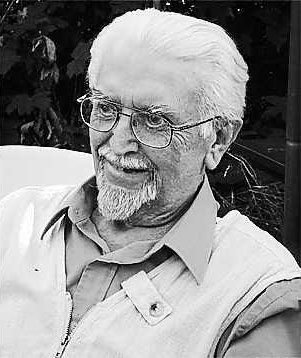
For several years now, the Anthony H. Richmond Scholarship, named after the late distinguished professor emeritus at York University, has provided a path for promising graduate student researchers to advance important research in refugee studies.
Richmond, who died in 2017, was an academic known for his commitment to scholarly life, sense of fairness and unwavering advocacy for marginalized communities. A lifelong Quaker, he played a pivotal role in shaping York University’s Department of Sociology and was a founding member of the York Centre for Refugee Studies.

The scholarship – established in memory of Richmond by his wife, Freda Richmond, a fellow academic – honours his work by awarding $2,000 annually to graduate-level students conducting research at the intersections of forced migration, immigration, resettlement and environmental changes.
Since its inception in 2020, its funded students have been exploring climate justice education and tree planting campaigns near refugee camps. Its recipients have included students like Mara Mahmud, a master of arts candidate in environmental studies, who investigated the impact of climate change on urban development in Dhaka, Bangladesh, exemplifying the scholarship’s global reach and interdisciplinary nature; and Michael De Santi, a master’s student in civil engineering, who utilized artificial neural networks to enhance water quality in refugee settlements, demonstrating the scholarship’s commitment to tangible solutions for displaced populations.
The latest recipient of the Anthony H. Richmond Scholarship, announced in the fall of 2023, is Dheman Abdi, who is currently pursuing a master of arts in political science. Abdi is dedicated to unravelling the complex dynamics between political migration and anthropogenic climate change in the Horn of Africa, underscoring the scholarship’s relevance in addressing pressing global challenges and advancing knowledge in the region.
The recipients follow in the footsteps of Richmond's career, which spanned decades and continents, and was marked by a relentless pursuit of social justice and scholarly excellence.
Born in England, Richmond was a student at the London School of Economics and later the University of Liverpool, where he began his pioneering research on race relations and immigration. His first job was as a lecturer in social theory in the Department of Social Study at the University of Edinburgh, during which time he published his first book, The Colour Problem (1955). The second edition of this book, published in 1961, included a new chapter on apartheid in South Africa and brought him his first international recognition, stirring considerable controversy. His book was banned in South Africa until the country’s first free elections in 1994.
He relocated to Canada with his family in 1965, where his impact extended beyond academia, influencing Canadian immigration policy and advocating for racial equality.
Richmond’s published work, including his final book, Global Apartheid: Refugees, Racism and the New World Order (1994), continues to resonate with scholars and activists worldwide, and maintains the relevance of his research in today’s increasingly interconnected world. The Anthony H. Richmond Scholarship continues to do that, too.
